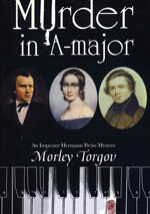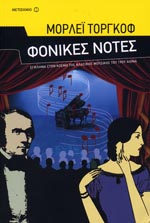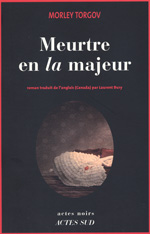In 701 B.C. the Assyrian empire was in its ascendancy. It had already vanquished the kingdom of Israel to the north including the capital at Samaria. It then prepared an assault on Judah and its capital at Jerusalem.
But in one of those significant events that changes the course of world history, Assyria was repelled. Jerusalem was saved until 586 B.C. when the Babylonians sacked the city, forcing its leadership class into exile.
Henry Aubin, in a major feat of scholarship, determines that Jerusalem was aided by a Kushite army from Africa which had marched northeast from the Nile valley. While the Bible attributes the Assyrian retreat to an angel and secular commentators cite pestilence, Aubin, in a meticulously documented work, demonstrates that an alliance with the African nation of Kush bolstered Jerusalem’s defences.
Kush, also known as Nubia, was located in what is now southern Egypt and northern Sudan. A monarchy that existed for more than 1000 years, from 900 B.C. to A.D. 350, Kushites held sway over Egypt from 712 B.C. to about 660 B.C. Of Egypt’s 31 dynasties, this, the 25th Dynasty, is the only one that all scholars agree, was black.
The commander of the Kushite expeditionary force was Taharqa (or as the Bible calls him Tirhakah). This Kushite prince, who had his own interests in halting Assyrian expansion, likely caught the aggressors by surprise as they prepared their siege of Jerusalem.
Aubin offers a thrilling military history and a stirring political analysis of the ancient world. He also sees the event as influential over the centuries.
The Kushite rescue of the Hebrew kingdom of Judah enabled the fragile, war-ravaged state to endure, to nurse itself back to economic and demographic health, and allowed the Hebrew religion, Yahwism, to evolve within the next several centuries into Judaism. Thus emerged the monotheistic trunk supporting Christianity and Islam.




“It’s still easy to see why, in the early days of his long writing career, Toronto’s Morley Torgov won two Leacock medals for humour. Since his first win in 1974, Torgov has retained his aptitude for subtle amusement. 

This is so even in his first venture into crime genre fiction, which shifts back in time to the 19th-century European world of what has become known as classical music.”
Joan Barfoot
London Free Press
“A nicely constructed whodunit.”
Globe and Mail
“This is a story well told: Setting, character, plot, enriched by the lifestyles and colours of the time. Murder is investigated, clues unearthed, expanded and timed to keep the reader turning the pages. Music and mystery make captivating partners.”
Hamilton Spectator
Metaixmio Publishing Greece 2009
Sallim Publishing Korea 2009
Actes Sud France 2009
Napoleon RendezVous US/Canada 2008
Murder in A-Major
Take one of the crowning musical geniuses of mid 19th century Europe, surround him with enemies, add several scoundrels, including one who ends up murdered under highly mysterious circumstances. and there you have the world of Robert and Clara Schumann in Germany in the 1850’s.
This historical mystery explores what or who was driving Robert Schumann mad. It is a world where classical composers were stars, and their egos were just as monstrous as rock stars of today.
Inspector Hermann Preiss moves through the fashionable music world of Dusseldorf, uncovering dark secrets and perhaps, a final answer.
Morley Torgov is an award-winning author of six previous novels. The Outside Chance of Maxmillian Glick, was made into a movie that took the main prize at the Toronto International Film Festival and was also the basis of a 26 part CBC TV sit com. His first book A Good Place to Come From was adapted for TV and for 3 full length stage plays by Israel Horovitz, that have enjoyed productions at numerous community theatres in the U.S.
He has exceptional knowledge of classical music, and has balanced two careers for most of his working life–writing and practicing law. He lives in Toronto.